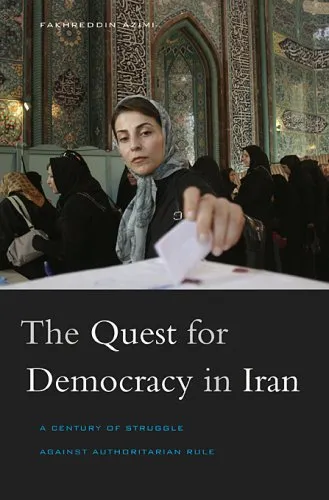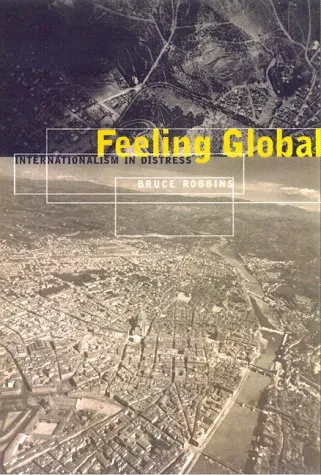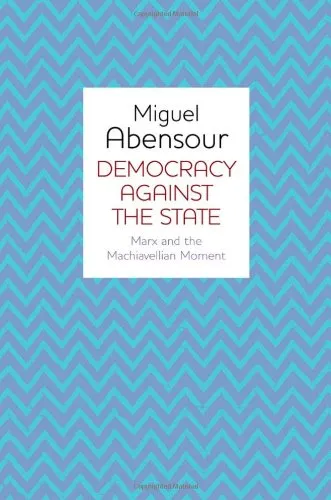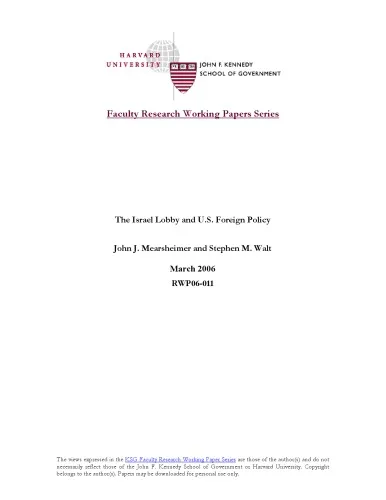The Quest for Democracy in Iran: A Century of Struggle against Authoritarian Rule
4.5
Reviews from our users

You Can Ask your questions from this book's AI after Login
Each download or ask from book AI costs 2 points. To earn more free points, please visit the Points Guide Page and complete some valuable actions.Related Refrences:
Introduction to 'The Quest for Democracy in Iran: A Century of Struggle against Authoritarian Rule'
In "The Quest for Democracy in Iran: A Century of Struggle against Authoritarian Rule," Fakhreddin Azimi delves deeply into the turbulent history of Iran's persistent and often harrowing journey toward democratic governance. This book meticulously examines the sociopolitical landscape of modern Iran, charting more than a hundred years of efforts by Iranian citizens, intellectuals, and reformists in opposing authoritarianism and striving for a more just and equal political order. Azimi's work stands as a profound exploration of Iran's modern history, as well as a testament to the resilience and aspiration of its people for self-determination and freedom.
From the Constitutional Revolution of 1906 to the present-day complexities of its political governance, this book not only brings Iran's history into sharp focus but highlights the critical tension between the forces of despotism and reform. Azimi masterfully weaves a narrative of struggle, sacrifice, and perseverance, providing readers with an in-depth understanding of the historical currents that have shaped Iran’s political, cultural, and economic identity. At its core, "The Quest for Democracy in Iran" underscores the vital importance of democracy in the face of entrenched authoritarian structures.
Detailed Summary of the Book
The book is divided into key time periods that correspond to significant moments in the history of Iran's struggle for democracy. Starting with the Constitutional Revolution (1906-1911), Azimi explores how the ideals of constitutionalism and modern governance first gained traction in Iranian society. He delves into the challenges faced by early reformers as they grappled with the traditional monarchy, external pressures from colonial powers, and internal divisions within the country.
Moving forward, the book examines the authoritarian rule of Reza Shah Pahlavi, whose reign from 1925 to 1941 marked a significant departure from democratic aspirations. Azimi analyzes how modernization under Reza Shah came at the expense of political freedoms, stifling voices of dissent and consolidating power around the monarchy. The narrative is further expanded with a critical discussion of the post-World War II era, highlighting the nationalization of oil under Prime Minister Mohammad Mossadeq and the eventual CIA-backed coup of 1953, which derailed Iran's democratic momentum.
The book then transitions to the rule of Mohammad Reza Shah Pahlavi, whose authoritarian tendencies, particularly during the White Revolution and the establishment of the SAVAK (secret police), further alienated reformist elements. Azimi provides a detailed account of the Iranian Revolution of 1979, analyzing how this monumental uprising, initially a mass movement for democracy and social justice, ultimately resulted in the establishment of an Islamic Republic—a new form of authoritarian governance.
Finally, Azimi addresses the post-revolutionary era, from the consolidation of power under Ayatollah Khomeini to the reformist movements that emerged in the 1990s and beyond. He also examines how contemporary Iran continues to wrestle with the competing forces of authoritarianism and the people's enduring quest for democracy.
Key Takeaways
- Democracy in Iran has been a recurring aspiration, rising again and again despite repeated setbacks and challenges.
- Authoritarianism in Iran has taken multiple forms across different regimes, adapting to both historical and modern contexts.
- Reformists and intellectuals have consistently served as critical drivers of change, even under oppressive conditions.
- Iran's struggle for democracy is deeply intertwined with global geopolitics, including interference by colonial and foreign powers.
- The Iranian people have demonstrated extraordinary resilience and adaptability in their pursuit of a more equitable political order.
Famous Quotes from the Book
"The pursuit of democracy in Iran has always been as much a yearning for justice as it has been a demand for representation and accountability."
"The history of democracy in Iran is one of interruptions rather than continuities, but every interruption has nurtured a deeper commitment to the ideals of freedom."
"Authoritarianism in Iran has often sought to masquerade as reform, but the people’s unwavering will for true change has remained steadfast."
Why This Book Matters
"The Quest for Democracy in Iran: A Century of Struggle against Authoritarian Rule" is a seminal work that provides a nuanced and comprehensive understanding of Iran's modern history. It is not just a historical account but also a reflection on the universal struggles for freedom and justice. By engaging deeply with the historical trajectories of Iranian society, this book offers valuable insights into the complexities of political change, the challenges of reform, and the resilience of democratic ideals.
For scholars, policy-makers, and general readers alike, Azimi's work serves as an invaluable resource for comprehending the roots of contemporary Iranian politics. It underscores the pivotal role of history in shaping the present, while offering lessons that resonate far beyond Iran’s borders. The book is essential reading for anyone seeking to understand not only Iran but the global struggle between authoritarianism and democracy in the modern age.
Free Direct Download
You Can Download this book after Login
Accessing books through legal platforms and public libraries not only supports the rights of authors and publishers but also contributes to the sustainability of reading culture. Before downloading, please take a moment to consider these options.
Find this book on other platforms:
WorldCat helps you find books in libraries worldwide.
See ratings, reviews, and discussions on Goodreads.
Find and buy rare or used books on AbeBooks.
1427
بازدید4.5
امتیاز0
نظر98%
رضایتReviews:
4.5
Based on 0 users review
Questions & Answers
Ask questions about this book or help others by answering
No questions yet. Be the first to ask!














